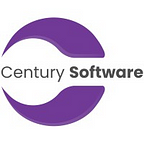How Robotic Process Automation Revolutionizes Business Operations
Robotic Process Automation (RPA) has emerged as a game-changing technology that revolutionizes business operations across industries. RPA leverages software robots or “bots” to automate repetitive tasks, streamline processes, and increase productivity. In this article, we will explore how Robotic Process Automation transforms business operations, enabling organizations to achieve higher efficiency, cost savings, and improved customer experiences.
Understanding Robotic Process Automation (RPA):
Robotic Process Automation is an advanced technology that automates rule-based, repetitive tasks typically performed by human workers. RPA tools mimic human actions within a digital environment, interacting with applications, databases, and systems to complete tasks efficiently and accurately. Unlike traditional automation, RPA requires minimal coding and can be implemented across various applications and platforms.
Unleashing the Power of RPA Tools:
RPA tools are the backbone of Robotic Process Automation, empowering organizations to optimize workflows and drive digital transformation. These tools are designed to integrate seamlessly with existing software and applications, making the automation process smooth and non-disruptive. RPA tools offer a user-friendly interface, enabling businesses to create, test, and deploy bots without the need for extensive programming knowledge.
Increased Efficiency and Productivity:
One of the primary benefits of Robotic Process Automation is its ability to dramatically increase efficiency and productivity. RPA bots can work tirelessly around the clock, executing tasks with precision and speed. By offloading repetitive and time-consuming tasks to bots, human employees can focus on strategic and value-added activities, leading to higher productivity and employee satisfaction.
Cost Savings and Resource Optimization:
Implementing RPA leads to significant cost savings for organizations. The use of RPA bots reduces the need for manual labor, minimizing human errors and associated costs. Additionally, RPA ensures optimal resource utilization, as bots can scale according to demand, eliminating the need to hire and train additional staff during peak periods.
Enhanced Accuracy and Data Quality:
RPA bots operate with near-zero errors, providing unmatched accuracy in executing tasks. By eliminating manual data entry and other error-prone processes, RPA enhances data quality, ensuring that critical business decisions are based on reliable information. This accuracy not only improves operational efficiency but also enhances customer satisfaction through more reliable services.
Streamlined Compliance and Risk Management:
Compliance and risk management are essential for businesses operating in regulated industries. RPA ensures adherence to regulatory standards by following predefined rules and workflows. Moreover, RPA logs all activities, providing an audit trail for compliance purposes. By reducing the potential for human errors and ensuring consistent processes, RPA minimizes compliance risks and potential penalties.
Rapid Implementation and Scalability:
RPA implementation is faster and more cost-effective than traditional IT projects. RPA tools are designed to be user-friendly, allowing organizations to automate processes quickly and efficiently. Furthermore, RPA offers scalability, enabling businesses to expand automation as needed to accommodate growth and changing business requirements.
Improved Customer Experience:
In the digital age, delivering exceptional customer experiences is paramount. RPA plays a crucial role in enhancing the customer journey by reducing processing times, increasing accuracy, and ensuring swift responses to customer inquiries. By automating customer-facing processes, RPA improves customer satisfaction and loyalty, contributing to long-term business success.
Empowering Employees with “No-Code” Automation:
RPA’s “no-code” automation empowers employees from various business units to design, deploy, and manage bots without extensive technical expertise. This democratization of automation enables cross-functional teams to collaborate on process improvements, driving a culture of innovation and continuous optimization.
Conclusion:
Robotic Process Automation tools offer unprecedented efficiency, cost savings, and accuracy, liberating human resources from repetitive tasks and enabling them to focus on strategic activities. Moreover, RPA streamlines compliance, enhances data quality, and scales seamlessly to accommodate business growth.
The adoption of RPA not only boosts productivity and customer experiences but also fosters a culture of innovation and collaboration. As businesses continue to navigate the evolving market landscape, embracing Robotic Process Automation becomes essential to stay competitive, agile, and responsive to customer needs.
